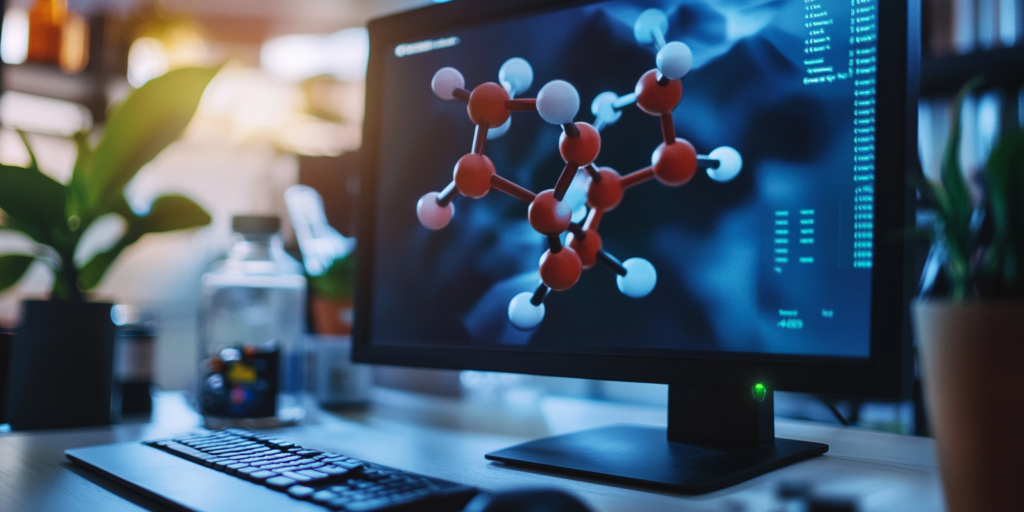The Impact of Generative AI on Innovation and Patents in Chemistry: A free training program
The rapid advancement of generative AI is revolutionizing the landscape of intellectual property and innovation. The technology is reshaping traditional innovation processes, presenting both new opportunities and challenges for businesses across various sectors. The Centre for International Intellectual Property Studies (CEIPI) and the Steinbeis-Transfer-Institut Intellectual Property Management have conducted a case study to delve deeper into the application of AI in the invention process, particularly focusing on AI-powered synthetic inventing and white-spot analysis.
The CEIPI Case Study
The CEIPI study employed the patentbutler.AI tool to perform an AI-supported white-spot analysis of the patent landscape. The process involved:
- Defining the initial characteristics of the desired patent
- Identifying patents with similar characteristics within a selected portfolio
- Analysing similarities based on individual features or combinations
- Iteratively changing features to identify less covered areas in existing patents landscapes
The study also demonstrated how AI can generate inventive solutions based on known innovation principles. The researchers used AI to apply TRIZ (Theory of Inventive Problem Solving) principles to a smart parking use case. The AI generated multiple inventive solutions, each utilizing different TRIZ principles, showcasing the potential of AI to enhance and accelerate the invention process.
Synthetic Inventions and Building Patent Portfolios
The case study underscored the growing importance of synthetic inventions in building valuable patent portfolios, especially for small and medium-sized enterprises (SMEs). Synthetic inventing involves systematically identifying inventions in desired areas through white-spot analyses and drafting patent applications based on these findings. This approach allows companies to:
- Create areas of exclusivity as part of a comprehensive IP strategy
- Systematically identify IP needs
- Focus on competitive effects rather than just technical features
- Develop patent portfolios that are closely aligned with strategic business objectives
Training Programs for AI-Supported Inventing
To facilitate the adoption of AI-supported invention processes, a training program has been developed and implemented for various industries, including software, agricultural technology, mechanical engineering, and electrical engineering. This program aims to equip SMEs with the necessary skills and knowledge to leverage AI in their innovation processes and patent strategy development.
AI in Chemistry and Patent Portfolio Development
Together with the German Office of Murgitroyd and Dr. Laura Fé, this training program is now also available for companies in the chemical industry to overcome the specific challenges of patenting AI-generated inventions in Germany. Various AI systems are being increasingly utilized in chemistry and for building patent portfolios. AI techniques such as Generative Adversarial Networks (GANs) and Reinforcement Learning (RL) are employed in various phases of drug discovery and development of chemical compounds. Key applications include:
- Protein structure prediction
- Screening and property prediction of compounds
- Generation of new chemical compounds
The use of AI in chemistry not only expedites the innovation process but also creates new challenges and opportunities in patent portfolio development. Companies in this sector are recognizing the need to adapt their IP approaches to accommodate AI-generated inventions.
Additionally, the German market faces challenges due to its focus on specialty chemicals, which are requiring the development of individualized solutions, and the increasing demand of sustainable solutions by customers. Also, the tight integration with other industries and their role in the value chains makes the use of generative AI especially promising for chemical companies.
Conclusion
Generative AI is significantly transforming the landscape of innovation processes. The CEIPI case study highlights the potential of AI-generated inventions and white-spot analyses in identifying new areas for patents. The rise of synthetic inventions, particularly among SMEs, emphasizes the need for strategic approaches to building patent portfolios.
As AI continues to evolve, its impact on various industries will only continue to grow. Training programs and adapted IP strategies are essential to effectively and efficiently apply the available tools. The STI-IPM is now offering also to companies from the chemical industry a free training program to support this endeavour.
How to apply
If you’re interested in learning more about how AI can revolutionize your innovation and patent strategies, consider participating in the STI-IPM’s training program. Equip yourself with the knowledge and skills to navigate the evolving landscape of AI-generated inventions and secure your company’s future in the age of generative AI. To register for a free workshop, please write a mail to Prof. Dr. Alexander Wurzer.



